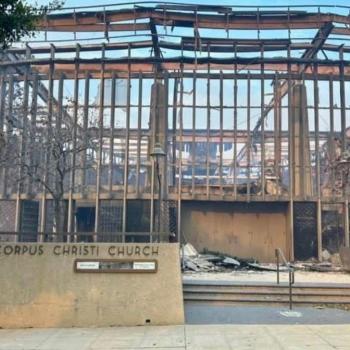Lectionary Reflections
Isaiah 60:1-6
January 6, 2016
The Epiphany of the Lord
It is Epiphany again, and what is Epiphany without Isaiah 60:1? "Arise, shine, for your light has come; the glory of YHWH has dawned upon you!" And, of course, no Christian can miss the gifts mentioned in Isaiah 60:6, gifts brought on the backs of a vast flock of camels, young and old camels from the southern deserts of Ephah and Midian and Sheba. Those gifts are the famous "gold and frankincense," two of the three offerings of the Wise Ones from the East who came to worship the child of Bethlehem in Matthew's gospel. These are the same Wise Ones who have probably graced the Christmas pageants that scrambled the Gospel's story into a mixed stew of shepherds and stars and lambs and kings and camels, quite obliterating the uniqueness of the tales told by Matthew and Luke and even John in his own odd ways. What's a pastor to do if she attempts to tell the story from Luke or the story from Matthew, leaving out Wise Ones from the former and shepherds from the latter? Preachers have been fired from their pulpits for much less, I dare say!
But Epiphany is rather more than the chance finally to sing "We Three Kings of Orient Are," and is certainly more than teaching some churchly rascals that the next line is not "tried to smoke a rubber cigar." It appears that what Isaiah is about harks back to a famous scene from the book of Deuteronomy 33, where the aged Moses blesses the twelve tribes of Israel before their entry into the land of promise and just before his own mysterious death. We modern Christians can learn something significant from the connections between these two passages.
In Deuteronomy 32:48-52, YHWH informs Moses, God's most faithful and intimate servant, that he will not be allowed to enter the land of promise because both he and Aaron "broke faith with me among the Israelites at the waters of Meribath-kadesh in the wilderness of Zin, by failing to maintain my holiness among the Israelites" (Dt. 33:51). Exactly what this indictment refers to is not altogether clear. After all, at Meribah (Ex. 17), Moses did YHWH's bidding in the face of the people's grumbling by giving to them the magic water from the rock. I suppose it could be said that Moses' fearful cry to YHWH that he is about to be murdered by the people since they claim to be dying of thirst, and his implicit demand that YHWH save him from their wrath, could be construed as a failure to "maintain YHWH's holiness among the people." Whatever the precise reason, YHWH has determined that the great Moses will not enter the land of promise; that tradition has held firm throughout the history of the story.
In Deuteronomy's telling of the Moses story, the prophet and leader brings the people right to the edge of the Jordan River and there offers to them several sermons recounting their responsibilities in their new land. And in the lengthy poem of chapter 33, he begins at the very beginning of YHWH's connection to this people. "YHWH came from Sinai, and dawned from Seir upon us; God shone forth from Mount Paran" (Dt. 33:2). No use hunting up these places on any tourist map of that time or this; Sinai, Seir, and Paran are the holy places of the mysterious YHWH, and are not be confined to any particular physical locations. Note that when YHWH first appeared to this special people, YHWH "dawned" and "shone forth." These two verbs figure prominently in the event of YHWH's coming as described in Isaiah 60. Out of the "thick darkness" that covers the people," YHWH "arises" and "YHWH's glory appears." Hence, it is YHWH's epiphany to the chosen people that is celebrated, YHWH's manifestation, YHWH's coming. Little wonder that the early Christians heard in these two accounts echoes, prefigurings, of the appearance of the child whom they called Christ, Messiah, manifested in the light of a miraculous star, bathed in divine light, at the dawning of a new age.
In Deuteronomy, the tribes who will constitute the new people of YHWH are celebrated in turn for faithfulness and greatness. Also in Isaiah 60 the scattered tribes of Israel, who have been dispersed into many foreign lands by the serial destructions of Assyrians and Babylonians, shall at last be gathered again to the sacred land, "your sons gathered from afar and your daughters carried on their nurses' arms" (Is. 60:4). And these exiles shall not come empty-handed. "The abundance of the sea" and "the wealth of the nations shall come to you," burdening the backs of those many southern camels. In short, the great promise of YHWH, who first appeared to Israel on Sinai, the promise of a land of plenty and safety and hope for all people will now be fulfilled.
And so it is for us Christians on this day we call Epiphany. We surely have experienced much deep darkness in 2015. From the attacks of terrorists to the horrors of deadly and devastating weather, many of us have experienced darkness. Too many of us have responded to these events with cries of fear, telling us to label the terrorists, round them up, and carpet bomb them to oblivion. Too many of us have refused to admit that tornadoes in December are not the normal patterns of our weather and that our industrially polluted change of the climate is real and accelerating. Terrorist assaults and springtime tornadoes in December cannot become for us the new normal. Still, we must not succumb to the blandishments of those who shout only "be afraid" or "get even" or "build stronger structures." The light of God comes for all of us again this Epiphany. The light of God pierces our gloomy and dark lives and offers to us a hope that we must both grasp and exemplify.
The promise of God has once again been fulfilled! Darkness must not be met by further darkness, but only by light, by the dawning of hope, by the appearance of the glory of God. May we offer our gold to those who would work to change our patterns of living, patterns that lead to increased atmospheric temperatures. May our incense be a symbol of honoring the God who comes to us again and again in glory. And may this Epiphany be not only a celebration of the appearance of God in our midst, but also the beginning of a new way of life for those of us who call ourselves the people of God.
12/21/2015 5:00:00 AM





